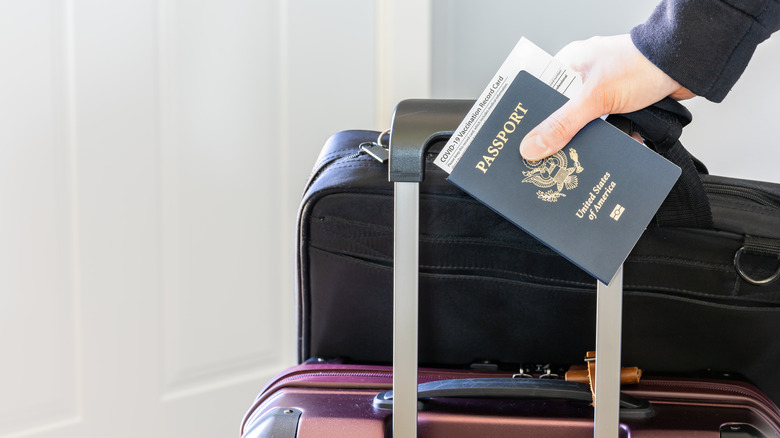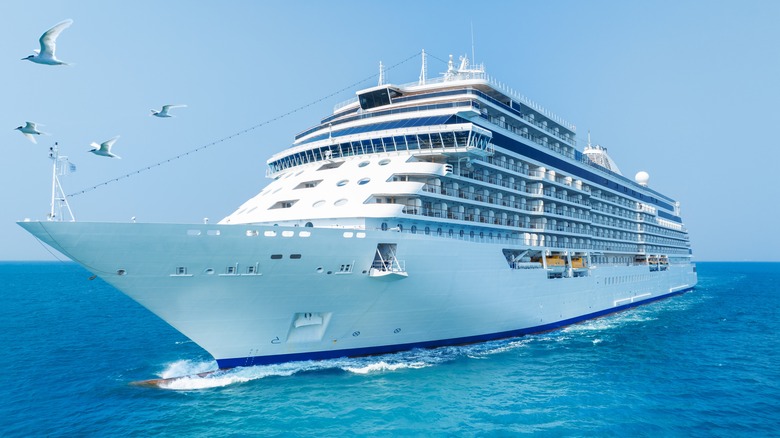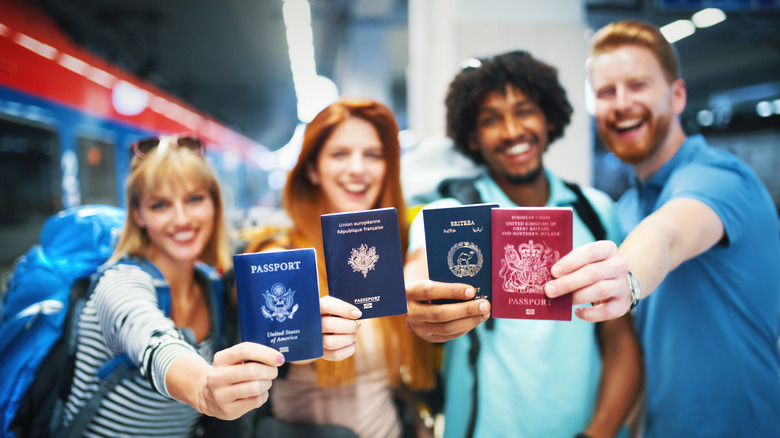Do You Always Need A Passport When Traveling By Cruise?
The beauty of cruises is that you can visit multiple destinations without the hassle of hopping onto multiple forms of transportation. In fact, you may even choose not to get off the ship at all and still be able to technically visit new places. But because of a cruise's insulated nature, one of the things that some fail to check before booking a cruise is figuring out whether or not they need a passport or a specific travel requirement before they set sail. But here's the quick answer: It depends.
If you're new to cruises, you might not know that there are two types of cruises: Closed loop and open loop. The former means the ship begins and ends from the same U.S. port and sticks to only the Western Hemisphere (think the Caribbean, Mexico, and Bahamas). In this case, passports aren't usually required, with the U.S. Customs and Borders Protection noting that proof of citizenship will do the trick. A driver's license for American citizens 16 years old and older will suffice, while younger ones can present a birth certificate.
Meanwhile, an open loop cruise is one that embarks from one U.S. port and disembarks at a different one. For these, even if the ship travels strictly within the Western Hemisphere, a passport is a must for passengers, no matter the age. Your 6-month-old infant? Yup, they'll need to have a passport, too. The same applies to longer voyages that venture beyond North and Central America.
The requirements are dependent on the cruise line and the destination
Cruise lines each have their own set of documentation rules, so don't assume that one size fits all. Major cruise lines like Norwegian, Celebrity, and Royal Caribbean have dedicated pages on their respective websites that outline the specific travel documents they'll be checking with passengers. For example, Norwegian says you can leave your passport at home for a Hawaiian cruise, but you'll definitely need it if you're cruising through the Panama Canal.
And then there are also cruise lines that aren't so lenient. The likes of Regent Seven Seas Cruises, Windstar Cruises, and Silversea oblige everyone to bring passports with at least six months of validity, no matter where they're going. Azamara Cruises even explicitly outlines on its website that guests without the right documents might face fines. "It's important to always check with the cruise line, because they can set their own rules that are actually above and beyond," travel expert Teresa Tennant told The Washington Post.
And don't forget about the destinations themselves. Some places require a passport even for closed-loop cruises. Caribbean spots like Barbados, St. Barth, Trinidad and Tobago, Haiti, and the Guadeloupe Islands demand a passport for entry. It's always best to do your homework before setting sail to understand your cruise line's and destinations' specific requirements. Otherwise, you might end up waving goodbye to your ship from the dock.
Even if it's not required, you should still bring a passport
Even if your cruise line and destinations don't require a passport, it's a smart move to bring one anyway if you possess a valid one. The U.S. State Department recommends including your passport in your detailed cruise packing list (kind of) regardless of what the cruise line says. "You should bring your passport even if your cruise says you won't need it," the agency explains on the site, noting that the travel document could be a lifesaver if the ship unexpectedly docks at a different port, during what it calls a "medical evacuation," or any other type of emergency.
Even seasoned cruise joiners on Reddit echo this advice, especially in cases when you get left behind at a cruise port and have to either fly back home or fly to wherever the ship ends up porting next in order to catch up. "If you decide to risk this without passports, which I do not recommend, make sure you get back to the ship on time in the ports. If you get left behind, flying back to the States without a passport is going to be a nightmare," one user wrote. In short: make it a habit to bring your passport whenever you join cruises. It's always better to be safe than sorry.


